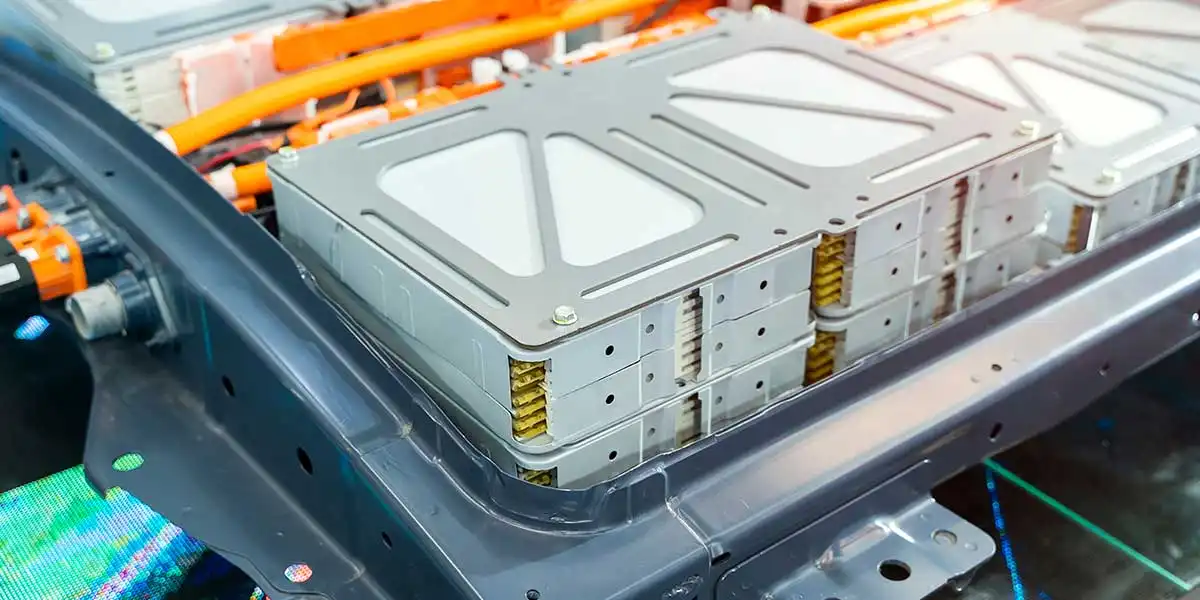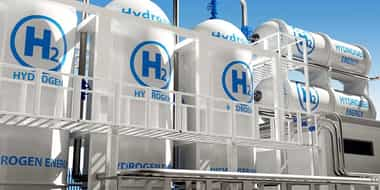
Nov 16, 2023
Blog Energy & Sustainability Powering the Future: Exploring the Global Electric Vehicle Battery Market Introduction
In recent years, the global electric vehicle (EV) battery market has been electrifying the automotive industry, revolutionizing the way we think about transportation and the environment. The rapid advancements in battery technology and the increasing adoption of electric vehicles have made this market one of the most exciting and transformative sectors in the global economy. As the world accelerates its transition away from fossil fuels, the automotive industry is undergoing a dramatic shift towards electrification. The heart of this transition is the electric vehicle battery, which not only powers cars but also holds the key to reducing greenhouse gas emissions, curbing air pollution, and reshaping our urban landscapes. The Global Electric Vehicle Battery Market is predicted to experience substantial growth in the coming years. According to BCC Research, the market size is expected to increase from $66.4 billion in 2023 to $161.3 billion by 2028, representing a compound annual growth rate (CAGR) of 19.4% for the forecast period of 2023 to 2028.
The EV battery market is also characterized by a high degree of regional diversity and competition. Leading the charge, China takes the top spot as both the largest producer and consumer of EV batteries, closely trailed by Europe and the United States. However, other regions such as India, Japan, South Korea, and Southeast Asia are also emerging as important players in the EV battery market. According to the International Energy Agency (IEA), it's projected that by 2030, China will constitute a substantial 40% share of the worldwide demand for vehicle batteries, with Europe following closely at 25%, and the United States accounting for 15%.
One of the primary drivers is the pressing concern for the environment and the need to reduce greenhouse gas emissions. Governments around the world are enacting stringent emissions regulations to combat climate change. As a result, automakers are increasingly investing in electric vehicles as a cleaner and more sustainable alternative to conventional gas-powered cars. The imperative to meet these environmental standards is pushing the EV battery market to the forefront of innovation and development. Technological advancements play a pivotal role in driving this market forward. Ongoing innovations in battery technology, such as enhancing energy density, extending battery cycle life, and reducing charging times, are making electric vehicles not only more eco-friendly, but also more appealing to consumers. These technological breakthroughs address critical issues such as range anxiety and make EVs a more practical choice for everyday use. Government incentives and policies are another powerful driving force. Many countries offer substantial incentives for electric vehicle adoption, including tax credits, rebates, and access to carpool lanes. These incentives significantly influence consumer behavior and drive-up demand for electric vehicles. Reduced operating costs are also compelling consumers to switch to electric vehicles. Compared to internal combustion engine vehicles, EVs have lower operating and maintenance costs. Electric motors are inherently more efficient, and the simplicity of their design, with fewer moving parts, translates into reduced maintenance expenses.
Furthermore, the global expansion of charging infrastructure has mitigated concerns about the convenience of owning an electric vehicle. The availability of fast-charging networks and home-charging solutions means that EV owners can charge their vehicles conveniently, making it easier to incorporate electric vehicles into their daily routines. In parallel, an increasing awareness among consumers about the environmental benefits of electric vehicles, coupled with a growing understanding of the advantages of electric propulsion, is driving demand. Consumers are increasingly choosing EVs not only for their eco-friendliness, but also for their superior performance and lower long-term costs. Market competition is also fostering growth. With more automakers entering the electric vehicle market and offering a broader range of electric models, competition is intensifying. This, in turn, is spurring technological advancements and driving down the cost of electric vehicles, making them more accessible to a wider audience.
The Global Electric Vehicle Battery Market is predicted to experience substantial growth in the coming years. According to BCC Research, the market size is expected to increase from $66.4 billion in 2023 to $161.3 billion by 2028, representing a compound annual growth rate (CAGR) of 19.4% for the forecast period of 2023 to 2028.
These are some of the key players in the electric vehicle battery market, but there are also many other companies that are competing and innovating in this field. The EV battery market is expected to grow rapidly in the coming years, as more consumers switch to electric vehicles and more governments support the adoption of clean mobility.
In conclusion, the global electric vehicle (EV) battery market is experiencing dynamic growth, spurred by a confluence of factors. This expansion is fueled by the pressing need to reduce greenhouse gas emissions, leading governments to enact strict emissions regulations, encouraging automakers to invest in electric vehicles as a cleaner alternative. Moreover, continuous technological advancements, such as improving energy density and reducing charging times, are making EVs more eco-friendly and appealing to consumers. Government incentives reduce operating costs, and a growing charging infrastructure further promotes EV adoption. Consumer awareness about the environmental benefits and the superior performance of EVs is on the rise. In a competitive landscape, key players like Tesla, Panasonic, BYD, CATL, and LG Chem are driving innovation, and the market is anticipated to grow substantially, as more consumers and governments support the shift toward cleaner mobility.
Consider becoming a member of the BCC Research library and gain access to our full catalog of market research reports in your industry. Not seeing what you are looking for? We offer custom solutions too, including our new product line: Custom Intelligence Services.
Contact us today to find out more.

Karishma Arora is an Assistant Team Lead in Marketing Operations at BCC Research, with a master's degree in commerce. She is a passionate marketer with a knack for creativity and data-driven strategies.

Electrical switches—devices that control the flow of electricity—are the backbon...

As the world accelerates toward net-zero emissions, hydrogen, and ammonia have e...

Hydrogen technology is widely used across industries like glass, fertilizer, met...

We are your trusted research partner, providing actionable insights and custom consulting across life sciences, advanced materials, and technology. Allow BCC Research to nurture your smartest business decisions today, tomorrow, and beyond.
Contact UsBCC Research provides objective, unbiased measurement and assessment of market opportunities with detailed market research reports. Our experienced industry analysts assess growth opportunities, market sizing, technologies, applications, supply chains and companies with the singular goal of helping you make informed business decisions, free of noise and hype.